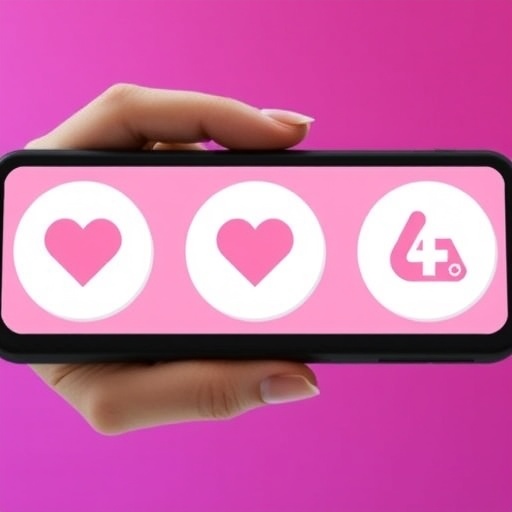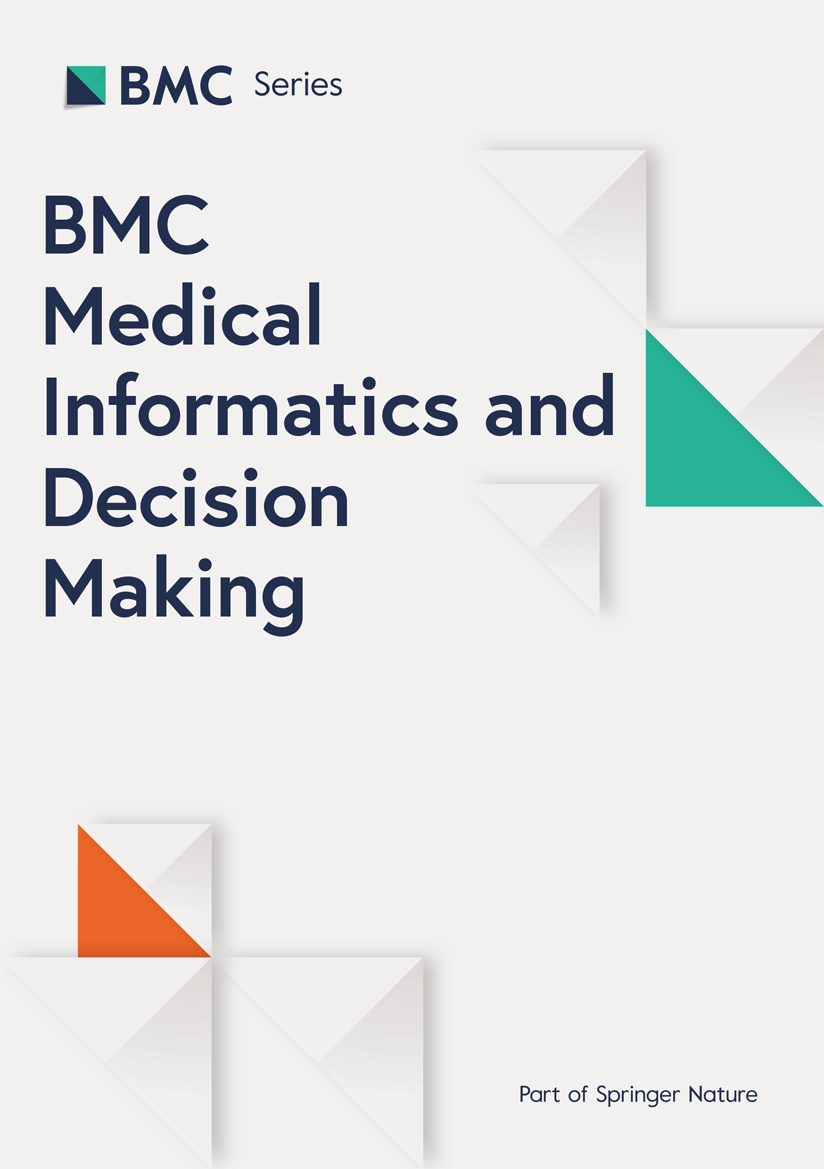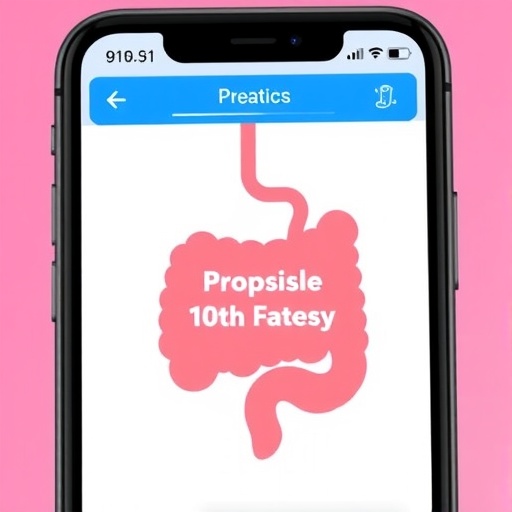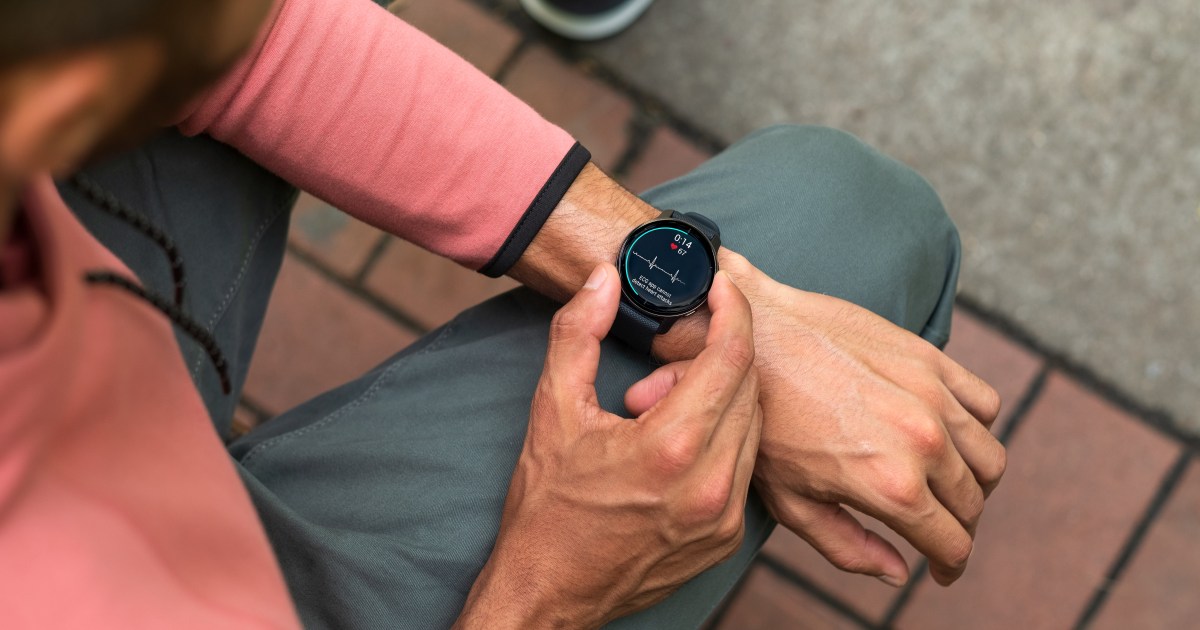Exploring mHealth app utilization for diabetes self-management: survey insights from a northern district in Malaysia | BMC Public Health

Ministry of Health Malaysia. Clinical Practice Guidelines: Management of Type 2 Diabetes Mellitus, 6th Edition. December 2020. Accessed 12 Dec 2023.
Paz-Pacheco E. Diabetes clinical practice guidelines (CPGs) for the ASEAN region: Country initiatives for collectively enhanced diabetes care in the region. J ASEAN Federation Endocr Soc. 2011;26(1):36–36.
American Diabetes Association. Standards of medical care in diabetes—2014. Diabetes Care. 2014;37(Supplement1):S14–80. https://doi.org/10.2337/dc13-S011.
Google Scholar
Institute for Public Health. National Health and Morbidity Survey 2015 (NHMS 2015). II: non-communicable diseases, risk factors & other Health problems. Ministry Health Malaysia. 2015;2:185–6.
Nation. March. Malaysia has 3.6 million diabetics. The Star Online. 2019. Accessed 12 Dec 2023.
Pharmaceutical Services Division. Protocol Medication Therapy Adherence Clinic: Diabetes. Second edition. 2014. Accessed 12 Dec 2023.
Kebede MM, Pischke CR. Popular diabetes apps and the impact of diabetes app use on self-care behaviour: a survey among the digital community of persons with diabetes on social media. Front Endocrinol. 2019;10:135. https://doi.org/10.3389/fendo.2019.00135.
Google Scholar
Rafiullah M, David SK. Health apps usage and preferences among Saudi patients with diabetes: a survey. Int J Clin Pract. 2019;73(5):e13345. https://doi.org/10.1111/ijcp.13345.
Google Scholar
Torbjørnsen A, Ribu L, Rønnevig M, Grøttland A, Helseth S. Users’ acceptability of a mobile application for persons with type 2 diabetes: a qualitative study. BMC Health Serv Res. 2019;19:1–4. https://doi.org/10.1186/s12913-019-4486-2.
Google Scholar
Jeffrey B, Bagala M, Creighton A, Leavey T, Nicholls S, Wood C, Longman J, Barker J, Pit S. Mobile phone applications and their use in the self-management of type 2 diabetes mellitus: a qualitative study among app users and non-app users. Diabetol Metab Syndr. 2019;11(1):1–7. https://doi.org/10.1186/s13098-019-0480-4.
Google Scholar
Adu MD, Malabu UH, Malau-Aduli AE, Malau-Aduli BS. Users’ preferences and design recommendations to promote engagements with mobile apps for diabetes self-management: multi-national perspectives. PLoS ONE. 2018;13(12):e0208942. https://doi.org/10.1371/journal.pone.0208942.
Google Scholar
Hou C, Carter B, Hewitt J, Francisa T, Mayor S. Do mobile phone applications improve glycemic control (HbA1c) in the self-management of diabetes? A systematic review, meta-analysis, and GRADE of 14 randomized trials. Diabetes Care. 2016;39(11):2089–95. https://doi.org/10.2337/dc16-0346.
Google Scholar
Wu IX, Kee JC, Threapleton DE, Ma RC, Lam VC, Lee EK, Wong SY, Chung VC. Effectiveness of smartphone technologies on glycaemic control in patients with type 2 diabetes: systematic review with meta-analysis of 17 trials. Obes Rev. 2018;19(6):825–38. https://doi.org/10.1111/obr.12669.
Google Scholar
Anderson K, Burford O, Emmerton L. Mobile health apps to facilitate self-care: a qualitative study of user experiences. PLoS ONE. 2016;11(5):e0156164. https://doi.org/10.1371/journal.pone.0156164.
Google Scholar
Kayyali R, Peletidi A, Ismail M, Hashim Z, Bandeira P, Bonnah J. Awareness and use of mHealth apps: a study from England. Pharmacy. 2017;5(2):33. https://doi.org/10.3390/pharmacy5020033.
Google Scholar
Haase J, Farris KB, Dorsch MP. Mobile applications to improve medication adherence. Telemedicine e-Health. 2017;23(2):75–9. https://doi.org/10.1089/tmj.2015.0227.
Google Scholar
Izahar S, Lean QY, Hameed MA, Murugiah MK, Patel RP, Al-Worafi YM, Wong TW, Ming LC. Content analysis of mobile health applications on diabetes mellitus. Front Endocrinol. 2017;8:318. https://doi.org/10.3389/fendo.2017.00318.
Google Scholar
Azhar FA, Dhillon JS. A systematic review of factors influencing the effective use of mHealth apps for self-care. In2016 3rd International Conference on Computer and Information Sciences (ICCOINS) 2016 Aug 15 (pp. 191–196). IEEE; https://doi.org/10.1109/ICCOINS.2016.7783213
Hussein Z, Taher SW, Singh HK, Swee WC. Diabetes care in Malaysia: problems, new models, and solutions. Annals Global Health. 2015;81(6):851–62. https://doi.org/10.1016/j.aogh.2015.12.016.
Google Scholar
Department of Statistics Malaysia. My Local Stats Kinta Perak 2021. Department of Statistics Malaysia. 2022. Accessed 12 Dec 2023.
Cheng LS, Aagaard-Hansen J, Mustapha FI, Bjerre-Christensen U, Malaysian diabetes patients’perceptions, attitudes and practices in relation to self-care and encounters with primary health care providers. Malaysian J Med Res (MJMR). 2018;2(3):1–0. https://doi.org/10.31674/mjmr.2018.v02i03.001.
Google Scholar
Janatkhah R, Tabari-Khomeiran R, Asadi-Louyeh A, Kazemnejad E. Usability of a disease management mobile application as perceived by patients with diabetes. CIN: Computers Inf Nurs. 2019;37(8):413–9. https://doi.org/10.1097/CIN.0000000000000532.
Google Scholar
Adu MD, Malabu UH, Malau-Aduli AE, Malau-Aduli BS. Mobile application intervention to promote self-management in insulin-requiring type 1 and type 2 diabetes individuals: protocol for a mixed methods study and non-blinded randomized controlled trial. Diabetes, metabolic syndrome and obesity: targets and therapy. 2019 May 24:789–800; https://doi.org/10.2147/DMSO.S208324
Zhou L, Bao J, Setiawan IM, Saptono A, Parmanto B. The mHealth App Usability Questionnaire (MAUQ): development and validation study. JMIR mHealth uHealth. 2019;7(4):e11500. https://doi.org/10.2196/11500.
Google Scholar
World Health Organization. Process of translation and adaptation of instruments. World Health Organization. 2020. Accessed 12 Dec 2023.
Beaton DE, Bombardier C, Guillemin F, Ferraz MB. Guidelines for the process of cross-cultural adaptation of self-report measures. Spine. 2000;25(24):3186–91.
Google Scholar
Tsang S, Royse CF, Terkawi AS. Guidelines for developing, translating, and validating a questionnaire in perioperative and pain medicine. Saudi J Anaesth. 2017;11(Suppl 1):S80. https://doi.org/10.4103/sja.SJA_203_17.
Google Scholar
Supramaniam P, Ismail SH, Ali A, Leong EL, Muninathan P, Adnan TH, Paramesvaran S. Modified-malay eating behavior and pattern questionnaire (Malay-EBPQ): translation and validation among Malaysian women. Health Qual Life Outcomes. 2023;21(1):101. https://doi.org/10.1186/s12955-023-02182-2.
Google Scholar
mySugr GmbH. mySugr – Diabetes Tracker Log (version 3.92.68) [Mobile app]. App Store. 2021. Accessed 12 Dec 2023.
Azumio I. Glucose Buddy Diabetes Tracker (version 5.36.9536). [Mobile app]. App Store. 2012. Accessed 12 Dec 2023.
BookDoc. BookDoc – Go Activ Get Rewards (version 5.15.2). [Mobile app]. App store. 2015. Accessed 12 Dec 2023.
Sirma Medical Systems. Diabetes:M – Blood Sugar Diary (version varies with device). [Mobile app]. App store. 2013. Accessed 12 Dec 2023.
BP Healthcare Group. Doctor2u – OneStopHealthcareAPP (version 5.5.6). [Mobile app]. App store. 2015. Accessed 12 Dec 2023.
Leap Fitness Group. Blood Sugar Tracker – Diabetes (version 1.1.1). [Mobile app]. App store. 2021. Accessed 12 Dec 2023.
HealthifyMe (Calorie, Counter. Weight Loss Coach). HealthifyMe – Calorie Counter (version 22.7.5). [Mobile app]. App store. 2013. Accessed 12 Dec 2023.
Samsung Electronics Co., Ltd. Samsung Health (version 6.25.0.075). [Mobile app]. App store. 2015. Accessed 12 Dec 2023.
Sneha S, Thalla S, Rischie I, Shahriar H. Health internet technology for chronic conditions: review of diabetes management apps. JMIR Diabetes. 2021;6(3):e17431. https://doi.org/10.2196/17431.
Google Scholar
Ku EJ, Park JI, Jeon HJ, Oh T, Choi HJ. Clinical efficacy and plausibility of a smartphone-based integrated online real‐time diabetes care system via glucose and diet data management: a pilot study. Intern Med J. 2020;50(12):1524–32. https://doi.org/10.1111/imj.14738.
Google Scholar
Adu MD, Malabu UH, Malau-Aduli AE, Drovandi A, Malau-Aduli BS. User retention and engagement with a mobile app intervention to support self-management in australians with type 1 or type 2 diabetes (my care hub): mixed methods study. JMIR mHealth uHealth. 2020;8(6):e17802. https://doi.org/10.2196/17802.
Google Scholar
Debong F, Mayer H, Kober J. Real-world assessments of mySugr mobile health app. Diabetes Technol Ther. 2019;21(S2):S2–35. https://doi.org/10.1089/dia.2019.0019.
Google Scholar
Vehi J, Isern JR, Parcerisas A, Calm R, Contreras I. Impact of use frequency of a mobile diabetes management app on blood glucose control: evaluation study. JMIR mHealth uHealth. 2019;7(3):e11933. https://doi.org/10.2196/11933.
Google Scholar
Salari R, Niakan Kalhori SR, Fatehi F, Ghazisaeedi M, Nazari M. Determining minimum set of features for diabetes mobile apps. J Diabetes Metabolic Disorders. 2019;18:333–40. https://doi.org/10.1007/s40200-019-00417-y.
Google Scholar
Dincer B, Bahçecik N. The effect of a mobile application on the foot care of individuals with type 2 diabetes: a randomised controlled study. Health Educ J. 2021;80(4):425–37. https://doi.org/10.1177/0017896920981617.
Google Scholar
Sadler S, Gerrard J, Searle A, Lanting S, West M, Wilson R, Ginige A, Fang KY, Chuter V. The Use of mHealth apps for the Assessment and Management of Diabetes-related Foot Health outcomes: systematic review. J Med Internet Res. 2023;25:e47608. https://doi.org/10.2196/47608.
Google Scholar
Wallace D, Perry J, Yu J, Mehta J, Hunter P, Cross KM. Assessing the need for mobile health (mHealth) in monitoring the diabetic lower extremity. JMIR mHealth uHealth. 2019;7(4):e11879. https://doi.org/10.2196/11879.
Google Scholar
Ploderer B, Brown R, Seng LS, Lazzarini PA, van Netten JJ. Promoting self-care of diabetic foot ulcers through a mobile phone app: user-centered design and evaluation. JMIR Diabetes. 2018;3(4):e10105. https://doi.org/10.2196/10105.
Google Scholar
Boodoo C, Perry JA, Hunter PJ, Duta DI, Newhook SC, Leung G, Cross K. Views of patients on using mHealth to monitor and prevent diabetic foot ulcers: qualitative study. JMIR Diabetes. 2017;2(2):e8505. https://doi.org/10.2196/diabetes.8505.
Google Scholar
Martinez M, Park SB, Maison I, Mody V, Soh LS, Parihar HS. iOS appstore-based phone apps for diabetes management: potential for use in medication adherence. JMIR Diabetes. 2017;2(2):e6468. https://doi.org/10.2196/diabetes.6468.
Google Scholar
Islam SM, Mishra V, Siddiqui MU, Moses JC, Adibi S, Nguyen L, Wickramasinghe N. Smartphone apps for diabetes medication adherence: systematic review. JMIR Diabetes. 2022;7(2):e33264. https://doi.org/10.2196/33264.
Google Scholar
Anglada-Martinez H, Riu‐Viladoms G, Martin‐Conde M, Rovira‐Illamola M, Sotoca‐Momblona JM, Codina‐Jane C. Does mHealth increase adherence to medication? Results of a systematic review. Int J Clin Pract. 2015;69(1):9–32. https://doi.org/10.1111/ijcp.12582.
Google Scholar
Santo K, Richtering SS, Chalmers J, Thiagalingam A, Chow CK, Redfern J. Mobile phone apps to improve medication adherence: a systematic stepwise process to identify high-quality apps. JMIR mHealth uHealth. 2016;4(4):e6742. https://doi.org/10.2196/mhealth.6742.
Google Scholar
Mira JJ, Navarro I, Botella F, Borrás F, Nuño-Solinís R, Orozco D, Iglesias-Alonso F, Pérez-Pérez P, Lorenzo S, Toro N. A Spanish pillbox app for elderly patients taking multiple medications: randomized controlled trial. J Med Internet Res. 2014;16(4):e99. https://doi.org/10.2196/jmir.3269.
Google Scholar
Pulman A, Taylor J, Galvin K, Masding M. Ideas and enhancements related to mobile applications to support type 1 diabetes. JMIR Mhealth Uhealth. 2013;1(2):e2567. https://doi.org/10.2196/mhealth.2567.
Google Scholar
Van Der Heide I, Uiters E, Rademakers J, Struijs JN, Schuit AJ, Baan CA. Associations among health literacy, diabetes knowledge, and self-management behavior in adults with diabetes: results of a Dutch cross-sectional study. J Health Communication. 2014;19(sup2):115–31. https://doi.org/10.1080/10810730.2014.936989.
Google Scholar
Kueh YC, Morris T, Ismail AA. The effect of diabetes knowledge and attitudes on self-management and quality of life among people with type 2 diabetes. Psychol Health Med. 2017;22(2):138–44. https://doi.org/10.1080/13548506.2016.1147055.
Google Scholar
Awad A, Dalle H, Enlund H. Diabetic patients’ knowledge of therapeutic goals in Kuwait. Med Principles Pract. 2011;20(2):118–23. https://doi.org/10.1159/000321198.
Google Scholar
Waheedi M, Awad A, Hatoum HT, Enlund H. The relationship between patients’ knowledge of diabetes therapeutic goals and self-management behaviour, including adherence. Int J Clin Pharm. 2017;39:45–51. https://doi.org/10.1007/s11096-016-0375-5.
Google Scholar
García-Pérez LE, Álvarez M, Dilla T, Gil-Guillén V, Orozco-Beltrán D. Adherence to therapies in patients with type 2 diabetes. Diabetes Therapy. 2013;4:175–94. https://doi.org/10.1007/s13300-013-0034-y.
Google Scholar
Su J, Dugas M, Guo X, Gao G. Building social identity-based groups to enhance online peer support for patients with chronic disease: a pilot study using mixed-methods evaluation. Translational Behav Med. 2022;12(5):702–12. https://doi.org/10.1093/tbm/ibac008.
Google Scholar
Tang PY, Fisher EB. Enhancing Peer Support Interventions in Diabetes Care. Behavioral Diabetes: Social Ecological Perspectives for Pediatric and Adult Populations. 2020:417 – 37.
Rotheram-Borus MJ, Tomlinson M, Gwegwe M, Comulada WS, Kaufman N, Keim M. Diabetes buddies: peer support through a mobile phone buddy system. Diabetes Educ. 2012;38(3):357–65. https://doi.org/10.1177/014572171244461.
Google Scholar
Lambrinou E, Hansen TB, Beulens JW. Lifestyle factors, self-management and patient empowerment in diabetes care. Eur J Prev Cardiol. 2019;26(2suppl):55–63. https://doi.org/10.1177/2047487319885455.
Google Scholar
Shiyanbola OO, Maurer M, Mott M, Schwerer L, Sarkarati N, Sharp LK, Ward E. A feasibility pilot trial of a peer-support educational behavioral intervention to improve diabetes medication adherence in African americans. Pilot Feasibility Stud. 2022;8(1):1–4. https://doi.org/10.1186/s40814-022-01198-7.
Google Scholar
Cotter AP, Durant N, Agne AA, Cherrington AL. Internet interventions to support lifestyle modification for diabetes management: a systematic review of the evidence. J Diabetes Complicat. 2014;28(2):243–51. https://doi.org/10.1016/j.jdiacomp.2013.07.003.
Google Scholar
Qudah B, Luetsch K. The influence of mobile health applications on patient-healthcare provider relationships: a systematic, narrative review. Patient Educ Couns. 2019;102(6):1080–9. https://doi.org/10.1016/j.pec.2019.01.021.
Google Scholar
Jiang S, Liu PL, Chia CW, Cyberpsychology. Behav Social Netw. 2023;26(5):366–70. https://doi.org/10.1089/cyber.2022.0289.
Google Scholar
Potter E, Burstein F, Flynn D, Hwang ID, Dinh T, Goh TY, Ebrahim MM, Gilfillan C. Physician-authored feedback in a type 2 diabetes self-management app: acceptability study. JMIR Formative Res. 2022;6(5):e31736. https://doi.org/10.2196/31736.
Google Scholar
Kim H, Tietsort C, Posteher K, Michaelides A, Toro-Ramos T. Enabling self-management of a chronic condition through patient-centered coaching: a case of an mHealth diabetes prevention program for older adults. Health Commun. 2020;35(14):1791–9. https://doi.org/10.1080/10410236.2019.1663583.
Google Scholar
Yoon S, Ng JH, Kwan YH, Low LL. Healthcare professionals’ views of factors influencing diabetes self-management and the utility of a mHealth application and its features to support self-care. Front Endocrinol. 2022;13:793473. https://doi.org/10.3389/fendo.2022.793473.
Google Scholar
Griva K, Seow PS, Seow TY, Goh ZS, Choo JC, Foo M, Newman S. Patient-related barriers to timely dialysis access preparation: a qualitative study of the perspectives of patients, family members, and health care providers. Kidney Med. 2020;2(1):29–41. https://doi.org/10.1016/j.xkme.2019.10.011.
Google Scholar
Ayre J, Bonner C, Bramwell S, McClelland S, Jayaballa R, Maberly G, McCaffery K. Factors for supporting primary care physician engagement with patient apps for type 2 diabetes self-management that link to primary care: interview study. JMIR mHealth uHealth. 2019;7(1):e11885. https://doi.org/10.2196/11885.
Google Scholar
Parimbelli E, Bottalico B, Losiouk E, Tomasi M, Santosuosso A, Lanzola G, Quaglini S, Bellazzi R. Trusting telemedicine: a discussion on risks, safety, legal implications and liability of involved stakeholders. Int J Med Informatics. 2018;112:90–8. https://doi.org/10.1016/j.ijmedinf.2018.01.012.
Google Scholar
Yang YT, Silverman RD. Mobile health applications: the patchwork of legal and liability issues suggests strategies to improve oversight. Health Aff. 2014;33(2):222–7. https://doi.org/10.1377/hlthaff.2013.0958.
Google Scholar
Arora S, Yttri J, Nilsen W. Privacy and security in mobile health (mHealth) research. Alcohol Research: Curr Reviews. 2014;36(1):143.
Aljedaani B, Ahmad A, Zahedi M, Ali Babar M. Security awareness of end-users of mobile health applications: an empirical study. InMobiQuitous 2020-17th EAI International Conference on Mobile and Ubiquitous Systems: Computing, Networking and Services 2020 Dec 7 (pp. 125–136); https://doi.org/10.1145/3448891.3448952
Dehling T, Gao F, Schneider S, Sunyaev A. Exploring the far side of mobile health: information security and privacy of mobile health apps on iOS and Android. JMIR mHealth uHealth. 2015;3(1):e3672. https://doi.org/10.2196/mhealth.3672.
Google Scholar
Böhm AK, Jensen ML, Sørensen MR, Stargardt T. Real-world evidence of user engagement with mobile health for diabetes management: longitudinal observational study. JMIR mHealth uHealth. 2020;8(11):e22212. https://doi.org/10.2196/22212.
Google Scholar
Tatara N, Årsand E, Skrøvseth SO, Hartvigsen G. Long-term engagement with a mobile self-management system for people with type 2 diabetes. JMIR mHealth uHealth. 2013;1(1):e2432. https://doi.org/10.2196/mhealth.2432.
Google Scholar
Baptista S, Wadley G, Bird D, Oldenburg B, Speight J, My Diabetes Coach Research Group. User experiences with a type 2 diabetes coaching app: qualitative study. JMIR Diabetes. 2020;5(3):e16692. https://doi.org/10.2196/16692.
Google Scholar
Elkefi S. Access and usage of mobile health (mHealth) for communication, health monitoring, and decision-making among patients with multiple chronic diseases (comorbidities). IISE Trans Healthc Syst Eng 2023 Oct 16:1–4; https://doi.org/10.1080/24725579.2023.2267085
Bricca A, Pellegrini A, Zangger G, Ahler J, Jäger M, Skou ST. The quality of health apps and their potential to promote behavior change in patients with a chronic condition or multimorbidity: systematic search in app store and Google play. JMIR mHealth uHealth. 2022;10(2):e33168. https://doi.org/10.2196/33168.
Google Scholar
link








